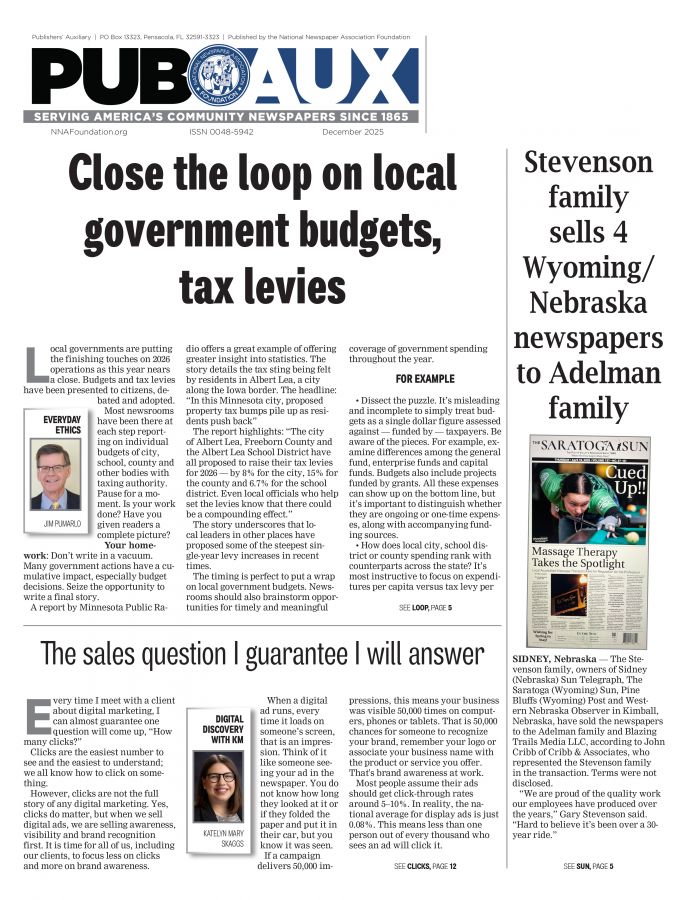U.S. Postal Service must make changes with community papers in mind
Sep 7, 2011
The U.S. Postal Service must change, but the needs of customers must be the first consideration, the National Newspaper Association told the Senate Committee on Homeland Security and Governmental Affairs today.
"The need for a cost-efficient, customer-oriented Postal Service is compelling and urgent," NNA Chief Executive Officer Tonda F. Rush told the committee. "We share the views of many that the Postal Service has been unfairly burdened with the way payments into benefits systems have been structured. We agree the mail-processing network carries a heavy cost of excess capacity. But the Postal Service's solution cannot be to push mail out of the system."
Postmaster General Patrick Donahoe has alerted Congress that USPS will be in technical default this month when it fails to make a $5.5 billion payment into a trust fund for future retirees' health benefits. It has already missed one payment of its employer matching funds into a federal retirement system. He has predicted USPS will run out of cash next summer unless Congress allows it to make sweeping changes. Among them are to end Saturday mail delivery, renegotiate labor contracts, and close many post offices and mail sorting facilities.
Rush said the changes are already affecting delivery of community newspapers that depend upon the mail, citing examples of subscribers lost because mail is being trucked into distant cities for processing. She said NNA does not oppose restructuring, provided customer needs are taken into account. Timely newspaper delivery is part of a community's needs as well, she said. She cited examples where NNA parts company with the Postal Service's proposed solutions.
"Closing smaller, efficiently-managed Sectional Center Facilities so larger metropolitan plants can be stacked up with mail for a 22-hour processing clock may make sense if the sole purpose is to eliminate jobs and run the machines longer, but if it causes diminished service standards and undependable service, this change will be an expense, and not a savings," she said. "It makes no sense to transport newspaper bundles from a small town into an urban flats sorting center just to bring them back again unsorted. When that happens, our service falls apart completely."
She said NNA was not opposed to the closing of small post offices, but in offices where newspaper mail is entered, it is not clear that USPS is taking into account the beneficial revenue from the publishers. Instead, it appears to be looking only at consumer purchases when deciding which offices produce too little revenue to remain open.
NNA also remains opposed to ending Saturday residential mail delivery.
"In addition to losing newspaper deliveries, we believe lost First-Class remittance mail will create cash flow disruptions for our newspapers and other small businesses," she said. "We have made it clear that if the Postal Service will not deliver our newspapers on Saturdays, we need the help of Congress to make sure we can do it ourselves.
NNA has called on policymakers to permit publishers to use the mailbox on Saturdays if residential delivery is ended.
Rush said the changes ahead must put customers first.
"The Postal Service must not abandon small town America. In the years ahead, the Postal Service is going to need the support of citizens, including those in small towns, to adapt to a new economy. We urge Congress not to let the Postal Service abandon those who need it most." The full testimony can be see here.
For the list of Post Offices announced for closing as of 9/15/2011, click here.
For the list of mail processing plants on the list for closure as of 9/15/2011, click here.







